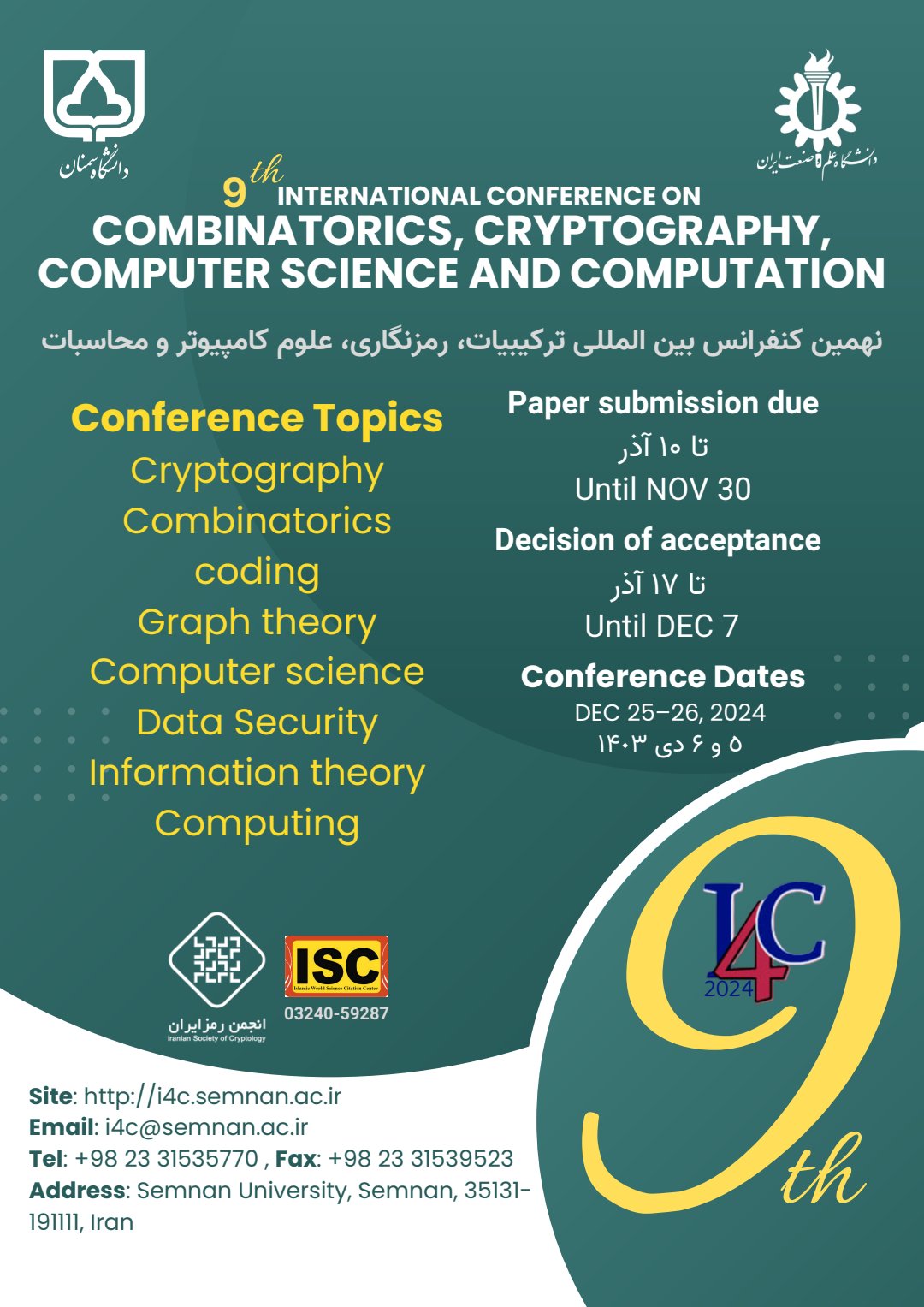You are here:
Home Objectives and Axes
Details
Yasin Abbasi
Uncategorised
Published: 31 October 2024
Conference objectives:
Presentation of the latest findings of scientific and exchange of views of researchers and researchers
Scientific culture building and expanding the boundaries of knowledge
Expanding interdisciplinary research
Conference themes:
A) Combinations
Graph
code
Composite designs
Trees
Latin squares
Networks
B) Cryptography
Mathematical basics of encryption
Design and analysis of symmetric and asymmetric codes
Analysis of password systems
Encryption
Hidden mining
Abstracting functions
Encryption protocols
Security
Key management
C) Calculations
Numerical calculations
Cloud Computing
Quantum computing
Random calculations
Fuzzy calculations
Algorithmic calculations
Computational complexity
Quantum computing
Subtopics:
Parallel and distributed computing
Graph theory, grid models and optimization
Computational algebra, computational geometry and number theory
Complexity of algorithms and data structure
Game theory
Approximate and online algorithms
Data mining
Theoretical foundations of cryptography
Design and analysis of flow and symmetric format encryption algorithms
Design and analysis of asymmetric code algorithms and numerical signature schemes
New methods in encryption (such as post-quantum, functional encryption, hybrid encryption)
Software and hardware implementation of encryption algorithms
Side channel attacks and ways to deal with it
Hidden encryption systems
Hardware manipulation and methods to deal with it
Hardware accelerators for security protocols
Correctness and fault finding of implementations
Security of wireless and mobile networks
Security of network infrastructures
Security of protocols and network layers
Detection, tracking and intrusion prevention systems
Security of vital infrastructures
Authentication and authenticity
Anonymity, privacy and trust management
Analysis of security protocols
Security and trust models
Formal methods in information security
Information Security Management System (ISMS)
Business security and electronic services
Electronic health security
Electronic banking security
Electronic education security
New algorithms in hiding and marking
Modeling attacks and marking channels
Hidden information mining
Applications of information hiding
Digital scaling and rooting methods
Database and network criminalization
Fraud detection
Diagnosis and prevention of manipulation
Malware and anti-malware analysis

 Persian (IR)
Persian (IR)  English (United Kingdom)
English (United Kingdom) 